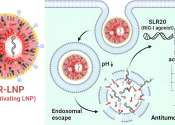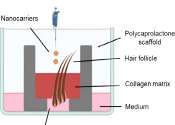Researchers advance understanding of a key celiac enzyme
Celiac disease affects around one in a hundred people worldwide, and those that have the autoimmune disorder have no choice but to stick to a gluten-free diet forever—at the moment, doctors have no other way to treat the ...









